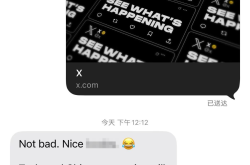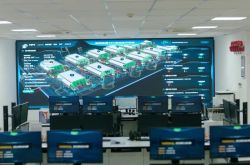NVIDIA has reportedly stopped accepting new orders for the H20 chip
![]() 09/26 2024
09/26 2024
![]() 416
416
The US government may review its semiconductor export control policies in October this year, at which time it may impose additional restrictions, including a ban on the export of NVIDIA's H20 chip to China. The future of NVIDIA's H20 chip is full of uncertainties, and its supply in the Chinese market is bound to be affected by US policies.
According to various media reports, some distributors have responded that NVIDIA has stopped accepting new orders for the H20. This potential export ban will have a significant impact on NVIDIA's business in the Chinese market, with potential losses estimated to reach up to $12 billion. According to the latest news from Cailian Press and several foreign media outlets, NVIDIA has stopped accepting new orders for its H20 chip, which is specifically designed for the Chinese market.
The media quoted distributors as saying that rumors of a potential ban on the "China-specific chip H20" have been circulating for some time, and recently there have been signs that the ban may be imminent - some domestic distributors have stopped accepting orders for the H20. Distributors revealed that NVIDIA stopped accepting H20 orders last month, but did not issue an official notice.
To be precise, they are waiting for recent news, and production scheduling is unlikely to proceed. Although there is no explicit instruction, this is essentially the case, and some customized requirements from customers may still be met.
NVIDIA began accepting orders for the H20 chip in February this year and began shipping in April, with bulk shipments starting in May.
However, some distributors still have some inventory on hand. Industry insiders also reported that there have been large shipments of H20 recently, exceeding expectations for the year.
Several manufacturers have received large shipments recently, exceeding their expectations. For example, it is estimated that ByteDance currently has more than 100,000 NVIDIA chips in its possession; the 2024 H20 chip order has been increased to 320,000-330,000 units, with 140,000-150,000 units already delivered, and a surge in shipments by the end of the year is also possible.
In terms of market reaction, possibly influenced by the aforementioned news, NVIDIA's share price fluctuated on Friday, falling 2 points at the opening and closing down 1.59%; after trading on the 23rd, the share price fell by $0.18. Meanwhile, some Chinese AI companies and chip distributors have started to consider alternative solutions in case of a disruption in the supply of H20 chips.
The H20 chip is built on the Hopper architecture and boasts 96GB of HBM3 memory and 4.0TB/s of memory bandwidth. Nevertheless, it has 41% fewer GPU cores than the H100 and performs 28% worse. Additionally, due to its underwhelming performance and relatively high price, interest in the H20 chip is low within the industry, with some distributors even describing it as a "chicken rib" - virtually worthless.
NVIDIA remains committed to the Chinese market and plans to begin mass production of the H20 AI GPU in the second quarter of 2024. This chip is designed by NVIDIA to comply with US export regulations and continue operating within a strict regulatory framework. The H20 chip is the most powerful of the three chips designed by NVIDIA for the Chinese market, and despite facing US export restrictions, NVIDIA has not given up on the Chinese market but has accelerated its return to the Chinese AI chip market.
Moreover, NVIDIA faces competition from domestic Chinese AI chip manufacturers, including Huawei's Ascend 910B, which outperforms the H20 in terms of performance. Nevertheless, the H20 chip remains competitive in certain key applications. Despite this, NVIDIA's sales of H20 chips in the Chinese market are expected to reach approximately $12 billion, with over one million customized H20 chips expected to be delivered in the coming months.
In summary, despite the possibility of NVIDIA stopping accepting new orders for the H20, the company remains committed to the Chinese market and plans to continue selling and producing AI chips there.








